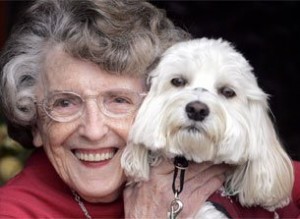Tips for Making the Most of Your Dog’s Golden Years
A devoted pet lover and fragrance expert, Gerrard Larriett uses his over 10 years experience in the cosmetics industry to create a spa-inspired line of pet care products.
With appropriate care most dogs live complete and happy lives. Unfortunately, an adored pet never seems to live long enough.
Each breed has different life spans. While taking care of your aging dog you need to adapt his environment for his comfort. As dogs get older, they develop aches, joint pain, generalized weakness and an almost definite increase in medical problems.
Adjust his surroundings to minimize discomfort. Protect him from excessive heat and cold. Older dogs are unable to regulate body temperature as a younger dog.

Try to give your dog regular exercise. Make sure your dogs health matches his exercise routine. If your dog exhibits signs of heavy panting or opposes exercise you need to change his routine.
Adapt his diet and feeding schedule to his needs. As dogs age they are less active and need fewer calories. Prescription diets are available. Discuss special diets with your veterinarian.
Older dogs can experience hearing loss and declining eyesight. Accommodate for his safety.
Senior dogs require special dental care. They are more likely to develop gum problems and disease. Complete dental cleaning should be performed by your vet every six months which does require anesthesia. Make sure complete blood work is performed.
Older dogs need extra bathing and grooming. Dry skin can be a normal part of aging or it can be a sign of an underlying medical condition. They also require more frequent nail trimming.
Take into consideration his age in human years. If he is 13 in dog years, he may suffer the same aging ailments as a 75 year old human.
Continue with bi-annual vet exams. Senior dogs need extra care with their aging problems.
Being mindful to the needs of your aging dog will allow him to enjoy his golden years.


